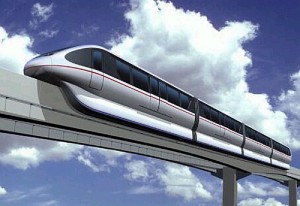
The project is aimed at reducing trafic congestion in a city. About 87 percent of the population in Riadh currently uses private cars as the primary mode of transport.
“This Light Transit Railway (LTR) project for the capital city, as it is called, comes under the jurisdiction of Arriyadh Development Authority (ADA),” Mohammed Abu-zaid, a spokesman for the Saudi Railways Organization (SRO), said on Monday.
Abuzaid also pointed out that the SRO would receive eight train cars within 36 months from now from the Spanish company CAF.
“The total cost of these eight train units is about SR612 million,” said Abuzaid.
CAF signed a contract with the SRO for the supply of the trains and a four-year maintenance project.
Asked about the details of the LTR system in Riyadh, an ADA source said the final preparations to implement the project have already been made.
“The construction works have started on the two railway routes of the city,” said the source, adding that 23 stations will be built on the first route, while 13 stations will be constructed on the second rail link.
“The frequency of the services will be higher during peak hours,” said an ADA report obtained by Arab News.
“The electric metro system in Riyadh is part of the ADA’s efforts to make the public transport system more effective and popular.”
The first phase will involve the construction of a 25-km north-south route. It will extend from the northern side of the ring road to Olaya and Batha streets up to the southern ring road.
The second phase will involve a 14 km route extending from the eastern side of the ring road across King Abdulaziz Road up to King Khaled Road in the west. It is expected that the first phase of the project will cover 30 districts of the city.
Distances between stations will be 600 meters in highly populated areas and 1,100 meters to 2,000 meters in less populated areas of the city.
The rail system is expected to serve 1,500 passengers per hour per track initially and then up to 8,000 passengers per hour. Riyadh’s population has grown to over 6.5 million